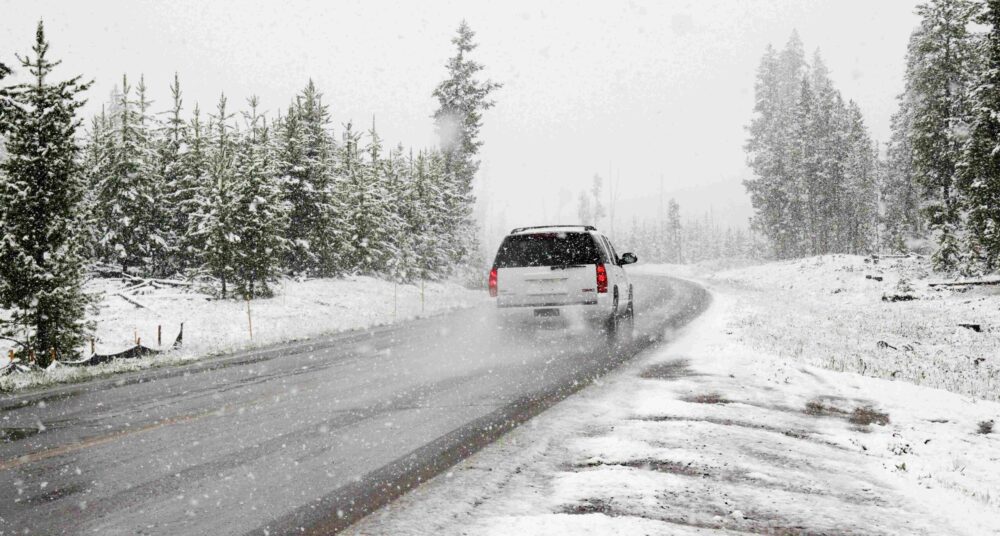“Winter is coming,” House Stark’s motto, “Game of Thrones” foreshadows a chain of events that ended in a whole lot of tragedy for everyone. You don’t really want that happening to your car insurance! While the onset of winter is still a good four months away, it does not hurt to have an idea of winter auto insurance. If you start taking steps towards opting for winter car insurance, we can assure you that you will be better prepared than a Targaryen when winter finally comes.
Basics of Winter Car Insurance
During the winter months, Mother Nature begins to show her fickle nature. Logically, you’d want to reduce your driving time if you live in a region with snow, ice, and poor visibility. Whether you’re thinking about not driving at all, need auto insurance assistance, or need some winter driving tips, we’re here to help.
Let’s take a look at what you should keep in mind when looking for winter car insurance.
Can I Put a Pause on My Car Insurance During Winter?
Technically, it is not feasible to “pause” your car insurance. This is due to the way your state’s vehicle registration laws and insurance work together. The basic car insurance rule in the United States is to register and insure your car to drive lawfully.
By “pausing” your insurance, you risk having your registration suspended, which could result in a large fine. However, if you’re ready to get imaginative, there’s some wiggle room.
Storage Insurance During Winter for Your Car
Several car insurance companies provide storage coverage. Except for comprehensive coverage, storage coverage will allow you to drop all of your insurance coverage.
One crucial point to remember: if you change your insurance policy to storage coverage, you are no longer legally permitted to drive your car. Since storage coverage does not provide adequate insurance coverage for your registration, you risk being reported and suspended.
There are a few things you can do to avoid this. If your state allows it and you qualify, you can file an Affidavit of Non-Use with the DMV. This indicates that your car is not being driven or parked on a public street and that your liability coverage has been revoked. This will eliminate the possibility of registration suspension or cancellation. If your state does not provide an Affidavit of Non-Use, find out if it regularly monitors your registration. If it doesn’t, you’ll only want to make sure your registration isn’t about to expire while your car is “in storage.”
Lower the Level of Your Insurance
If you cannot use storage coverage, you should think about dropping your physical coverage — collision and comprehensive. Collision and comprehensive insurance account for almost half of a driver’s entire insurance premiums. Consider removing these coverages if you’ll be putting your vehicle in a garage for a few months.
If you have a loan or lease on the vehicle, you will be unable to do this step.
- Coverage level with liability auto insurance (annually): $631
- Coverage level with a $500 deductible (annually): $1,627
- Coverage level with a $1000 deductible (annually): $1,421
Does Car Insurance Cover Winter Weather Accidents?
Yes, car insurance does cover accidents due to winter weather, but it depends on the coverage type you possess. Comprehensive and collision coverages are the ones that protect your car from the damage caused by winter weather events.
Comprehensive coverage
Accidents aren’t the only threat to your car during winter. Ice, hail, or falling tree branches can inflict damage on your car. Snow from the road or chunks of ice can crack your car’s windshields or windows, requiring repair or replacement. If you have a comprehensive insurance policy, it will cover these non-crash-related repairs.
Collision coverage
This type of coverage helps you cover the repair costs even if you’re at fault during an accident. You’ll get coverage if your car crashes into another car on a road covered with snow or slips on a black ice patch and skids into a fixed object like a lamppost or fence.
You won’t get repair coverage if another driver is at fault during the accident. Then, the property liability damage of the other driver would pay for your car’s repairs.
How to Prevent Winter Car Accidents
Having winter car insurance is handy if you’re a frequent driver. However, you must always be careful when you’re driving. These are some tips you can follow to avoid winter car crashes.
What to do
- The best way is to stay home. Avoid unnecessary travel.
- If you’re planning to drive, check the weather conditions. Avoid routes where the roads are covered with snow or ice.
- Don’t accelerate if you’re driving during a storm. You will find it difficult to slow down on icy, wet, and snowy roads.
- Always have additional space between you and the vehicle in front of you so you have additional time to brake if your car slips on a patch of snow or ice.
- Park your car in a covered garage so that it remains protected during adverse weather conditions.
- Don’t park your car under tree branches.
- Inflate the car tires properly or have snow tires on your car if the area you reside in has a lot of snowfall.
- Ensure that the windshield wipers are good enough to remove ice and snow from your car’s windshield.
Does Car Insurance Go up in the Winter?
The auto insurance rates may or may not increase because of the winter season. However, some winter-related factors can lead to higher premiums. The presence of ice and snow on the road can cause more accidents in winter, which can increase the probability of claims, thereby increasing the cost of insurance.

Sara Sam may not look like your typical car and finance expert, but don’t let that fool you. With over four years of experience in the industry, she knows all the ins and outs of cars, car insurance, and refinancing. You can trust Sara to help you navigate the often-confusing world of automobiles and financing.













